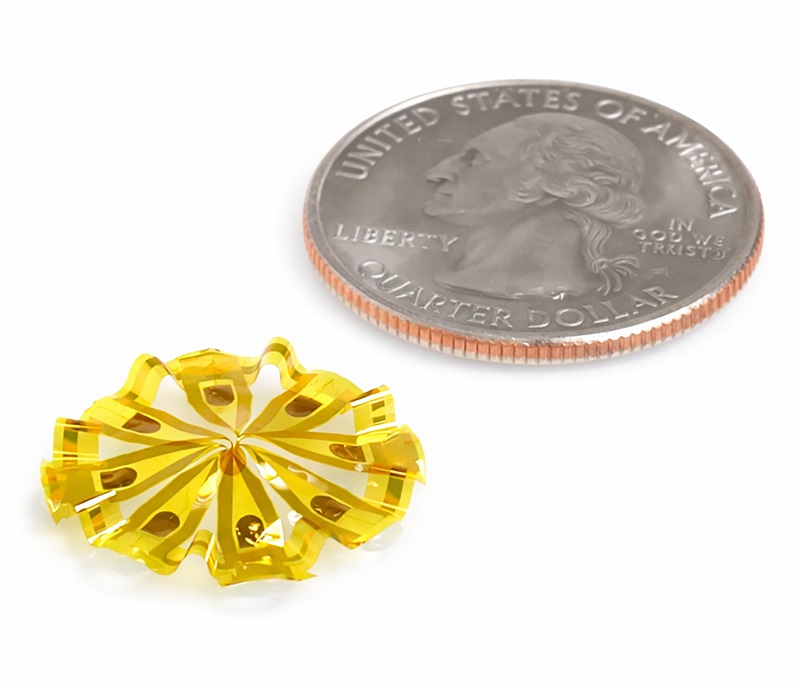Johns Hopkins scientists say they have used 3D imaging, special microscopes and artificial intelligence (AI) programs to construct new maps of mouse...
Vous n'êtes pas connecté
- English
- Français
- عربي
- Español
- Deutsch
- Português
- русский язык
- Català
- Italiano
- Nederlands, Vlaams
- Norsk
- فارسی
- বাংলা
- اردو
- Azərbaycan dili
- Bahasa Indonesia
- Հայերեն
- Ελληνικά
- Bosanski jezik
- українська мова
- Íslenska
- Türkmen, Түркмен
- Türkçe
- Shqip
- Eesti keel
- magyar
- Қазақ тілі
- Kalaallisut ; kalaallit oqaasii
- Lietuvių kalba
- Latviešu valoda
- македонски јазик
- Монгол
- Bahasa Melayu ; بهاس ملايو
- ဗမာစာ
- Slovenščina
- тоҷикӣ ; toğikī ; تاجیکی
- ไทย
- O'zbek ; Ўзбек ; أۇزبېك
- Tiếng Việt
- ភាសាខ្មែរ
- རྫོང་ཁ
- Soomaaliga ; af Soomaali
Rubriques :
 Maroc - TECHXPLORE.COM - RSS news feed - 09/12/2024 21:54
Maroc - TECHXPLORE.COM - RSS news feed - 09/12/2024 21:54
By tweaking materials, scientists create transistors that remember
A team of Johns Hopkins materials scientists made a surprising discovery that could change the way memory works in electronics. By tweaking the materials used in organic material-based logic switches called transistors, they created a new kind of memristor—devices that can remember past charging states when a current passes through it—suggesting the potential for developing electronic memory systems that mimic the way human brains work. Their results appear in Advanced Functional Materials.
Articles similaires
Growth of spreading pancreatic cancer fueled by ‘under-appreciated’ epigenetic changes
In a lab-grown cell study focused on potential new treatment targets for halting the spread of most pancreatic cancers, Johns Hopkins Medicine...
Growth of spreading pancreatic cancer fueled by ‘under-appreciated’ epigenetic changes
In a lab-grown cell study focused on potential new treatment targets for halting the spread of most pancreatic cancers, Johns Hopkins Medicine...
Scientists discover super-tough microbe that could survive a journey from Mars to Earth
Life on Earth may not be as isolated as we once thought. New research from Johns Hopkins University suggests that tiny life forms could potentially...
Scientists create 3D mesh that can listen to human brain organoids
Scientists have created a groundbreaking tool that can listen to the electrical signals inside tiny lab-grown human brain models, often called “mini...
Scientists hunt dark matter ‘stars’ that mimic black holes
Hypothetical dark matter stars known as ‘boson stars’ could leave telltale ripples across the cosmos, offering researchers a new way to probe the...
Textbooks challenged by new discovery about how cells divide
Scientists have uncovered a surprising new way...
Henrietta Lacks' Family Gets Undisclosed Settlement In "Immortal Cells" Case
Swiss pharmaceutical company Novartis has settled a lawsuit by the estate of Henrietta Lacks, which alleged that the company unfairly profited from...
Henrietta Lacks' Family Gets Undisclosed Settlement In "Immortal Cells" Case
Swiss pharmaceutical company Novartis has settled a lawsuit by the estate of Henrietta Lacks, which alleged that the company unfairly profited from...
Oxford insight promises sharper battery gains
Scientists at the University of Oxford have unveiled a technique that could accelerate charging times and extend the lifespan of lithium-ion batteries...
Les derniers communiqués
-
Boeing and Sun PhuQuoc Airways Announce Order for Up to 40 787 Dreamliner Jets
Boeing - 18/02/2026
-
Vietnam Airlines Finalizes Order for 50 Boeing 737 MAX Airplanes
Boeing - 18/02/2026
-
Air Astana Finalizes Order For Up to 15 Boeing 787 Dreamliner Jets
Boeing - 17/02/2026
-
McDonald’s Canada Reimagines Breakfast with the New Breakfast Poutine in Atlantic Canada
MC DONALD'S - 17/02/2026
-
Statement on Starliner Crewed Flight Test Investigation Report
Boeing - 17/02/2026
-
Meta begins construction of $10-billion data centre in Indiana
Meta - 12/02/2026
-
Last 787-8 test airplane bows out after years of breakthroughs
Boeing - 10/02/2026
-
Boeing Flight Deck Modernization Keeps C-17A Mission Ready
Boeing - 09/02/2026
-
ANA receives Boeing’s 100th 787 Landing Gear Exchange Delivery
Boeing - 04/02/2026
-
Boeing announces largest-ever Landing Gear Exchange agreement at Singapore Airshow
Boeing - 04/02/2026



